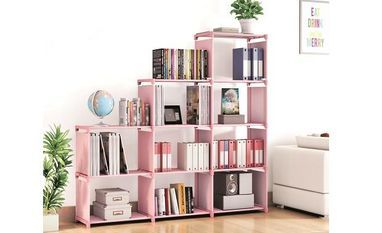A new bunch of firms are getting into the organised furniture retail market in India at a time when older players are either reorganising operations or simply scaling down their presence. The Kishore-Biyani-led Future group, for instance, has opted to keep its focus on categories such as food, apparels and fast moving consumer goods, hiving off its home furnishings business into a separate company.
Department store chains Shoppers Stop and Lifestyle, on the other hand, are revamping their home furnishing chains Home Stop and Home Centre respectively in a bid to improve sales. Reliance Retail, the country’s largest organised retailer, hasn’t tapped the full potential of the furniture market yet, despite a presence across formats such as grocery, fashion, lifestyle and electronics with over 11,000 stores in 6,700 cities.
The sense of cautiousness notwithstanding, there are still new names that are emerging within the organised furniture retail market in India. These players are keen to make headway in a fragmented space, tap the growing base of millennials and avoid pitfalls of some of the early entrants in the category.
E-tailer Flipkart, now owned by Walmart, the world’s largest retailer, has just launched a new private label Perfect Homes Studio, the move coming as Flipkart increases its array of furniture products, improves home delivery and free installation services across pin codes and drives affordable payment options to consumers.
Pantaloons, the apparel retail chain from Aditya Birla Fashion and Retail, plans to enter the home furnishings segment in the coming months, the company said in an investor call last week, in an effort at diversifying its product portfolio.
Pidilite, maker of popular adhesive brands Fevicol and Fevikwik, has recently invested in online furniture retailer Pepperfry, aimed at backing firms that complement its product portfolio. This was the second investment by Pidilite after it picked up a 5 per cent stake in online home décor company Homelane in December. Bharat Puri, managing director, Pidilite Industries, said the strategy was to put its might behind categories of the future and identify segments where growth potential existed.
According to industry estimates, India’s furniture market is pegged at around $17 billion (Rs 1.1 trillion). Of this, the organised market is around 3-5 per cent only, while the balance 95-97 per cent constitutes the unorganised market, which includes standalone stores and neighbourhood carpenters. The impediments to growth for organised players included managing the supply chain of products and the tendency of furniture items, especially, large pieces to move slowly off the shelf.
While Swedish furniture retailer Ikea, the largest in the world, has big plans for the India market including setting up large and small-format stores in major cities (it has one big store in Hyderabad) and getting into the online space like it has in Mumbai and Pune, experts say that the market will take time to evolve. “The next phase of growth in furniture retail will come from having hybrid models, where you have a presence online as well as offline and cater to a largely millennial and urban audience,” says Anil Talreja, partner, Deloitte India.
The new set of retailers appear to be taking cues from these emerging trends. Adarsh Menon, senior vice-president, private brands, electronics and furniture, Flipkart, says that the e-tailer is targeting a new segment of consumers with its latest initiative. “The new range under Perfect Homes Studio targets those consumers who aspire to own the latest décor and aesthetics, but may have budgetary concerns,” he says.
Experts say that affordability and easy-to-install-and-use products will be at the heart of the strategy for new home furniture retailers in the future. Growing urbanisation and people continuing to move from place to place in search of work and better quality of life will fuel this trend. Carrying heavy furniture around, says Talreja, becomes difficult, giving organised players a chance to address this audience with durable products that are both conveniently available as well as easy on the pocket.
Lifestyle, which is looking to give its furniture business a new lease of life, is introducing a new segment that will cater to mainly small furniture items that are easy to pick up from the store and are affordable at the same time. The retailer hopes to improve inventory turns as a result of this and boost sales. Pantaloons also proposes to keep price points competitive and designs classy as it eyes a foray into home furnishings. Pepperfry is pushing an omnichannel strategy, pushing its presence both online and offline.
Experts say that an online presence will play a bigger role for the new crop of retailers, much more than it did with early entrants. “More than ever before, the rise of e-shopping is a key reason for the furniture market to propel in the last few years,” says Anuj Kejriwal, managing director and chief executive officer, Anarock Retail. Biyani, for instance, has switched his attention online as far as his home furnishings business goes, taking his offline brand Home Town into the digital world and also tying up with Amazon to push its products on its platform.
Godrej Interio, part of Godrej & Boyce, recently launched its e-store even as it pushes its presence offline with exclusive stores and over 800 dealer outlets. Industry officials say that more retailers could step into the category in the future as e-commerce grows.
Unlock 30+ premium stories daily hand-picked by our editors, across devices on browser and app.
Pick your 5 favourite companies, get a daily email with all news updates on them.
Full access to our intuitive epaper - clip, save, share articles from any device; newspaper archives from 2006.
Preferential invites to Business Standard events.
Curated newsletters on markets, personal finance, policy & politics, start-ups, technology, and more.
)